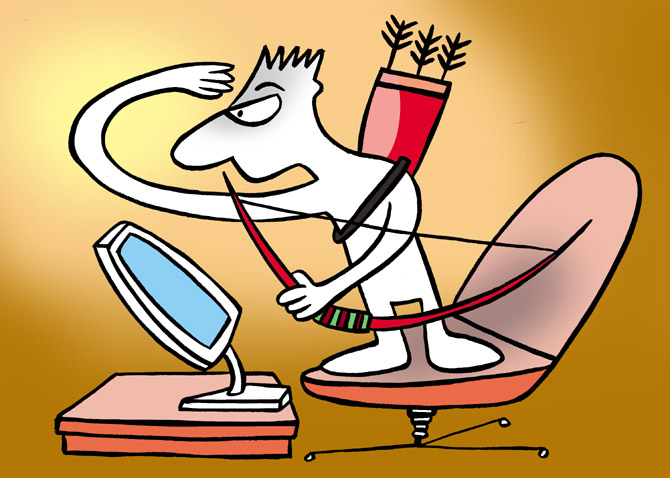Photographs: Uttam Ghosh/Rediff.com
In a series beginning today, four experts offer tips on what to watch out for when finding your next job…
Is a job change on your mind?
Do you feel under-utilised in your current job?
How should you answer simple questions in the interview?
Atul Sharma, President (HR and Admin), Bajaj Electricals offers his advice:
'Never be critical of your current job, employer, manager and colleagues'
How to search for your next job
Start talking about your candidature to people who could be your potential employers or managers.
If you are at a social gathering look out for people who matter in terms of your next job. Approach these people and try to engage them in a dialogue.
Impress your abilities and talents upon them. They can give you referrals, or be the spokespersons for your candidature if a job opening at their end matches your skill-sets.
If you happen to be in a senior position, express your views through a blog or through social networking sites in an articulate manner.
Make effective use of social networks to park your thoughts in such a way that you are topmost on the minds of people looking to employ senior level staff.
What to look out for when searching for your next job?
If I have to put myself in this position then the first thing I would do is assess what kind of potential I have, which is not really leveraged optimally in my current role.
Therefore, I will look out for an organisation that can leverage my potential.
Look for a role and an employer that will leverage your strengths and your skills optimally.
What else?
The next thing to look out for is a job that offers you the opportunity to influence the environment on a longer-term basis so that you can grow in the hierarchy in terms of responsibilities and compensation.
Sustainability of the job over the long-term should also matter to you.
Also, find out about the organisation’s position in terms of its future-readiness and growth plans.
Mistakes to avoid…
First thing: Never be critical of your current role, employer, manager and colleagues.
What you can say is ‘I am looking for bigger, better challenges’. But don’t be very critical and underplay your existing job. That will work against you during an interview or even when you are espousing your cause at a social gathering.
Don’t talk about what you can or want to do.
Instead, talk about what you have done and what you can do even better.
Talk about what you have learnt when handling crisis situations. Also talk about your failures and the lessons you learnt from them. That speaks a tonne about your sincerity.
How to deal with ‘why do you want to join us?’ or ‘why do you want to leave your current employer?’
The most awful or the most cliched response would be ‘for better prospects’.
Answer such questions candidly. You can say, ‘I feel my potential is being under-leveraged and in the role for which I am giving this interview, I see an opportunity to leverage that potential optimally’. This is a more professional response.
You can also, say, ‘I am also looking for an opportunity to earn better’.
If both these things are expressed simultaneously, employers see a balance in the interviewee.
As told to Prasanna D Zore


Comment
article